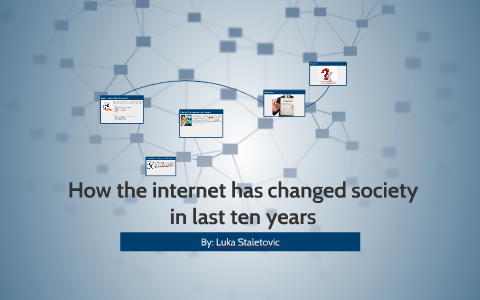How has the internet changed fiction? In today’s digital age and storytelling landscape, the internet has transformed the way stories are created, shared, and consumed, profoundly impacting writers and readers alike. The rise of social media has shifted the dynamic between the creators and their audiences, blurring the lines between readers and audiences. No longer confined to the pages of books, modern fiction and technology intertwine, allowing for innovative storytelling methods that resonate with diverse audiences around the globe. This evolving relationship has sparked a dialogue about the role of authenticity and artistic integrity in a space often driven by mass opinion and viral trends.
In this era of constant connectivity, fiction has adapted to meet the expectations of a rapidly changing society. As traditional narratives confront the immediacy of the online world, writers are now exploring new avenues for storytelling, reflecting the unique challenges and opportunities presented by modern communication platforms. The influence of online engagement has redefined how creators perceive their audience, transforming “readers” into a more interactive and vocal community that demands engagement. This shift emphasizes the necessity for authors to navigate the balance between individual expression and audience expectation, shaping the very fabric of fictional narratives in ways we could have hardly imagined before the birth of the internet.
How the Internet Has Changed Fiction
The rise of the internet has dramatically transformed the landscape of fiction writing, affecting both the creation and consumption of literature. No longer are writers confined to traditional publishing routes; the internet has democratized the process, enabling authors to reach wider audiences through blogs, eBooks, and self-publishing platforms. This shift means that many voices that once remained unheard are now able to share their narratives, which has enriched the tapestry of modern fiction. However, this accessibility also introduces the challenge of filtering through a deluge of content, as readers grapple with the overwhelming choices presented by an ever-expanding digital marketplace.
Moreover, the internet has made rapid communication integral to the creation process. Writers can quickly receive feedback or gauge public interest, altering how stories are shaped. This shift leads to more interactive storytelling, where readers potentially influence plot directions or character development. However, it can also place undue pressure on writers, as they may feel they have to cater to the whims of social media trending topics, thus navigating a fine line between artistic integrity and audience pleasing.
The Impact of Social Media on Writers
Social media presents both opportunities and challenges for today’s fiction writers. On one hand, platforms like Twitter, Instagram, and TikTok have emerged as powerful tools for connecting with readers and building personal brands. Authors can share snippets of their work, engage with audiences in real-time, and cultivate a supportive community. This instant communication fosters a sense of connection that was previously unavailable, granting authors immediate access to feedback and potential readers. Additionally, grassroots marketing through social media can create viral sensations and propel lesser-known authors into the spotlight.
On the other hand, there is a darker side to this development. The pressure to maintain an active online presence can distract writers from their craft. The quest for ‘likes’ and followers often overshadows the intrinsic value of storytelling, potentially leading to superficial engagement that prioritizes sensationalism over substance. Furthermore, with the rise of influencers, the subjective tastes of audiences can influence authorship, distorting the original intention behind literary works and pushing writers towards creating content that conforms to popular demand.
Modern Fiction and Technology
The interplay between modern fiction and technology has paved the way for unique narrative forms and styles. With advancements like eBooks, audiobooks, and interactive storytelling apps, readers are now experiencing narratives in ways that were unimaginable in the past. This evolution has influenced the medium of storytelling, allowing for diverse and experimental forms that embrace multimedia elements and cross-genre approaches. Readers can engage with stories not just through text, but through visuals and sound, creating a richer, more immersive literary experience.
However, this technological shift also raises questions about the essence of storytelling. The convenience of digital formats may lead to shorter attention spans and a preference for quick consumption over in-depth engagement with literature. This trend risks diminishing the complexity often found in traditional novels. As writers adapt to the demands of an increasingly technology-driven world, they must balance innovation with the timeless elements of storytelling that anchor fiction at its core, such as character development and emotional resonance.
Readers vs. Audiences in the Digital Age
In today’s digital era, the distinction between ‘readers’ and ‘audiences’ has blurred significantly. Readers traditionally engaged in solitary exploration of literature, but social media has transformed this experience into a communal event. Readers now analyze, discuss, and critique works publicly, influencing trends and impacting an author’s reputation almost instantaneously. Consequently, this shift has altered how authors perceive their readership; instead of writing for an individual experience, they now cater to a larger audience seeking validation and connection through shared reading experiences.
This communal reading experience has both benefits and drawbacks. On one hand, the opportunity for dialogue enhances the literary experience; readers can share insights, spark debates, and recommend works to broader circles. On the other hand, the pressure to align with audience expectations may stifle creativity, as writers could prioritize mass appeal over personal expression. Literature that challenges societal norms may be sidelined in favor of works that fit audience expectations, ultimately impacting the diversity of voices in modern fiction.
Fiction in the Internet Era
Fiction in the internet era faces an identity crisis amid evolving storytelling formats. The influx of user-generated content—from fan fiction to interactive narratives—has expanded the definition of what constitutes literature. Emerging platforms allow for collaborative storytelling, where multiple voices can contribute to a single narrative arc, presenting new opportunities for creativity. This fluidity can lead to vibrant storytelling ecosystems where genres blur, and non-linear narratives thrive, reflecting the interconnectedness of our online experiences.
However, the transformation also puts traditional narratives at risk. The dominance of bite-sized content threatens the appreciation of lengthy, complex novels that demand sustained contemplation. Readers accustomed to quick resolutions may struggle with the patience required for in-depth literary works. As writers navigate this new landscape, they must find innovative ways to engage and retain readers whose reading habits have been shaped by the immediacy of the internet, thus ensuring that the essence of compelling fiction continues to endure.
The Role of Research in Contemporary Fiction
Research has evolved into a crucial aspect of contemporary fiction writing, particularly in the age of the internet. Writers now have unprecedented access to information at their fingertips, enabling them to enhance the authenticity of their narratives. Online resources such as digital archives, databases, and even social media conversations provide writers with real-time insights that enrich their storytelling. This ease of access allows authors to create settings, characters, and plots that resonate with readers seeking accuracy and depth in their literary experiences.
However, reliance on digital research comes with its own set of challenges. While the internet can provide a wealth of data, it also risks fostering superficial understanding if writers do not engage deeply with their subjects. The ease of finding information can lead to a decline in traditional research practices, such as visiting libraries or conducting interviews. To create well-rounded characters or authentic settings, writers must navigate the balance between leveraging online resources and ensuring thorough investigation, preserving the narrative’s emotional and factual integrity.
Emotional Depth in Fiction Writing
In an age dominated by short attention spans and rapid content consumption, the need for emotional depth in fiction is more crucial than ever. Modern readership gravitates toward stories that evoke genuine feelings, transcending mere entertainment. Writers today face the challenge of crafting narratives that resonate on an emotional level, prompting readers to connect with characters and their journeys in meaningful ways. This depth is what distinguishes impactful literature from forgettable narratives.
Yet, the pressure of social media can lead to a tendency to prioritize quick, attention-grabbing content over profound storytelling. Writers must strike a balance between engaging readers and delivering heartfelt narratives that explore the human condition. As they navigate this complex landscape, they have the opportunity to redefine emotional truth in fiction, demonstrating that, despite the distractions of digital life, the core of storytelling retains its power to illuminate the struggles, joys, and complexities of being human.
The Future of Reading Habits
Reading habits are shifting dramatically as a result of the digital revolution; the way people engage with literature is evolving with technology. The convenience of eBooks and audiobooks has made literature more accessible than ever, which can encourage readers to explore diverse genres and authors. Additionally, digital platforms enable readers to sample works before committing financially, lowering barriers to entry for encountering new literature.
However, the downside to this ease is that it also influences the depth of engagement. Many readers find themselves distracted, hopping from one piece of content to another, often skimming rather than savoring stories. The richness of a deep, immersive reading experience may be compromised as people increasingly consume bite-sized information. Writers and publishers must consider these changes in consumption as they craft and market their works, finding innovative ways to captivate readers’ attention and encourage deeper engagement with fiction.
Embracing Change in Fiction Writing
As the literary landscape continues to evolve due to technological advancements, writers are called to adapt. This change can be daunting, but it also presents ample opportunities for innovative storytelling. Embracing new tools and platforms allows writers to explore fresh narrative techniques, connect directly with their audience, and share their work with a global readership. Many authors are successfully using social media not just for promotion but as part of their creative process, engaging with readers and gaining insights that can shape their stories.
However, the essence of storytelling—delving into emotional truths and exploring the human experience—remains constant. While the formats and methods of delivery might change, writers must continue to prioritize authenticity and depth in their work. By harnessing technology while staying true to traditional storytelling principles, authors can navigate this dynamic landscape and ensure that their narratives resonate with readers in impactful ways.
Frequently Asked Questions
How has the internet changed fiction and storytelling?
The internet has fundamentally altered fiction and storytelling by providing writers with immediate access to research and audience feedback. This evolution has led to new narrative structures and themes that reflect modern digital life, including shorter attention spans influenced by social media. Writers often find themselves balancing personal expression against the need for broader appeal, as audience preferences are now shaped by viral trends and public opinion over traditional literary critique.
What is the impact of social media on writers’ creativity?
Social media has both empowered and constrained writers. On one hand, platforms provide tools for immediate feedback and a venue for sharing work with wider audiences. On the other hand, the pressure to conform to trending topics can stifle creativity, as writers may prioritize popularity over genuine storytelling. This shift challenges the pursuit of deep, personal truths that are at the core of impactful fiction.
How have readers’ roles changed in modern fiction due to the internet?
In the internet era, readers have transitioned from passive consumers to active participants in the literary process. They are now audiences who shape conversations around books through social media interactions, reviews, and recommendations. This shift has democratized taste-making but also created pressure for writers to cater to popular appeal, which can discourage the exploration of complex, nuanced narratives.
In what ways has technology affected the themes in modern fiction?
Technology has introduced themes of connectivity and disconnection in modern fiction, often portraying characters navigating a world dominated by digital interactions. Plot devices that once relied on characters becoming lost or isolated have diminished, as the omnipresence of the internet allows for constant communication and tracking. This evolution encourages exploration of new emotional and social dynamics in narrative forms.
How do writers benefit from the digital age and online research tools?
Writers in the digital age benefit greatly from online research tools that enable instant access to vast resources, historical archives, and thematic references. This immediacy allows for richer, more informed storytelling and the ability to quickly locate information that can enhance authenticity in their narratives. Writers can utilize digital platforms to connect with readers, share their work more widely, and collaborate with peers across the globe.
What challenges do authors face with fiction in the internet era?
Authors in the internet era face challenges such as maintaining individual voice amidst a tide of public opinion and navigating the pressure to produce content that attracts attention on social media. The fast-paced digital environment can lead to oversimplification of complex themes, as authors might feel compelled to cater to audience preferences rather than pursue deeper explorations of humanity that fiction traditionally embodies.
How has the rise of eBooks influenced reading habits?
The rise of eBooks has transformed reading habits significantly, making literature more accessible than ever. Readers can easily download books from anywhere, but the convenience often leads to shorter, less immersive reading sessions. The distraction of digital devices can fragment attention spans, influencing how stories are consumed and understood, which challenges the depth of engagement with narratives.
What importance does emotional truth have in fiction today?
Emotional truth remains critical in contemporary fiction as it fosters empathy and connection with readers. In an era dominated by superficial interactions, fiction offers a unique avenue to delve into authentic human experiences and explore emotional landscapes that might otherwise remain hidden. Writers strive to convey these truths despite the challenges posed by an internet landscape that often prioritizes brevity and spectacle.
Are there any drawbacks to the easy access to information for writers?
While easy access to information enhances research capabilities for writers, it can also lead to over-reliance on digital resources, which may detract from in-depth, experiential understanding. Furthermore, the vast amount of readily available information can overwhelm writers, making it difficult to sift through sources and discern valuable insights that contribute meaningfully to their narratives.
How does the internet shape readers’ expectations for fiction?
The internet shapes readers’ expectations for fiction by creating a culture of instant gratification and brevity. With exposure to micro-content on social media, readers may expect narratives to be fast-paced and easily digestible. This shift challenges authors to adapt their storytelling techniques while still striving to deliver depth and richness in their work, ultimately influencing the evolution of narrative styles.
| Key Point | Insights from Writers |
|---|---|
| The evolution of readership | Readers have shifted from being intimate consumers of fiction to becoming larger audiences swayed by public opinion and social media. |
| The impact of technology on literary depth | While the internet offers vast resources for research, it competes for distractions and diminishes deep engagement with texts. |
| Loss of traditional plot devices | Many classic narratives centered on characters getting lost or disconnected are less relatable in an age of constant connectivity. |
| Research advancement | Writers leverage internet tools for fast research, reducing the need for traditional libraries but sometimes missing in-depth context. |
| Conversational and emotional complexity | Authors express concern that the internet can dilute emotional truths that fiction aims to convey, risking the depth of narrative. |
| The importance of books | Books provide essential insights into human experiences that online articles often fail to encapsulate. |
| The necessity of human interaction | Critical understandings come from personal experiences and human connections that cannot be fully replaced by online resources. |
Summary
How the internet has changed fiction is a topic that highlights the complexities and challenges faced by modern writers and readers alike. In a world where social media dominates our interactions, fiction has had to adapt. While the internet provides unprecedented access to information and a wider range of voices, it also shifts readers’ engagement from intimate connections with texts to a more superficial interaction influenced by trending opinions. As authors reflect on their craft, they express a blend of optimism and concern about the changing landscape of storytelling. Ultimately, the enduring power of fiction lies in its ability to tap into human emotions and experiences, highlighting the need for a balance between digital convenience and the profound impact of reading in its traditional form.



